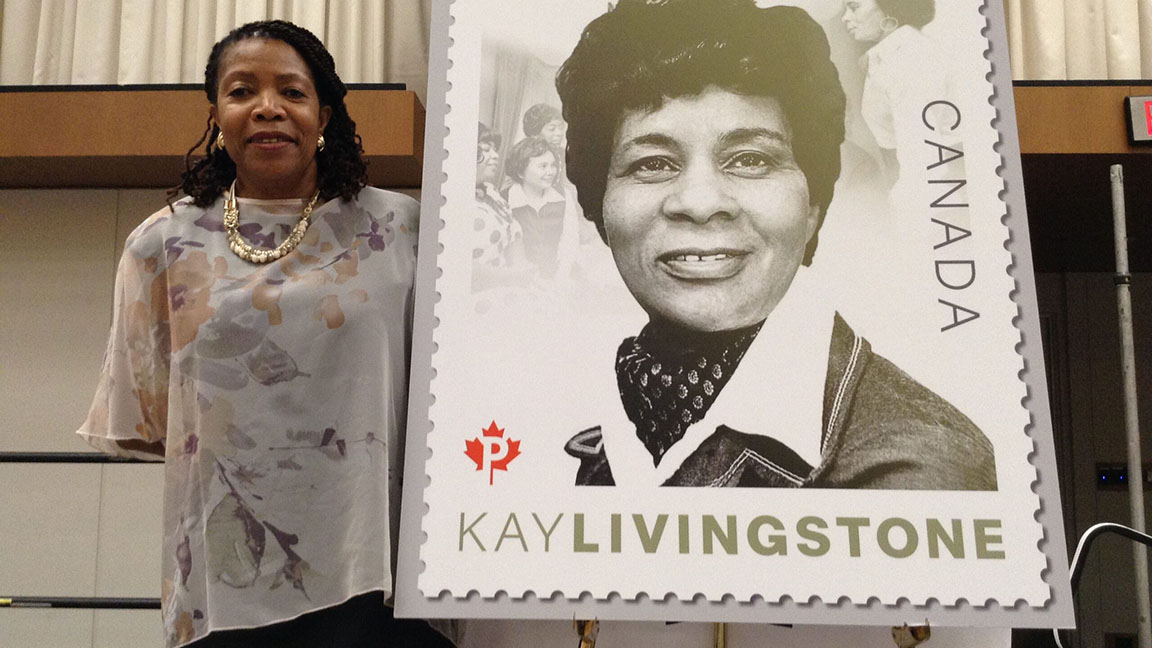Kathleen “Kay” Livingstone wanted Black women to live and work in safe communities to achieve their goals, whatever they may be. But it was difficult in the 1970s because Black women were not seen in society.
To change that, she launched the Congress of Black Women of Canada (CBWC), a non-profit organization, in 1973. She died two years later.
“Black women have, over the past 300 years, made a viable contribution to the (growth) and prosperity of this country,” she said in the founding meeting of the congress. “The knowledge, the courage, the unshakeable faith and determination of these women, our pioneers, has been the bulwark of the development of our lifestyle.”
The organization has since grown to seven regional chapters across the GTA, and its mission is to help support Black women and the Black community.
“We have a mission to empower Black women. We have a mission to assist Black women as they deal with some of the challenges,” said Loris Thomas, the Regional President of the Congress of Black Women of Canada.
“We look at the community as a whole, but because we are a Black woman’s organization, we also recognize that a lot of the households are led by women,” she said.
Livingstone was the first president of the Canadian Negro Women’s Association (CANEWA), its original name, which provided Black students with scholarships to help keep them in school and find equality.
“We help high school students going on to university by awarding them post-secondary scholarships,” Thomas said.
“We actually have had folks who have been awarded scholarships to go on to Humber College and all the other universities,” she said.
Canada Helps, a charity that supports the advancement of Black Canadians is another organization that helps members of the Black community who have been discriminated against.
Nicole Dansei, the senior manager of Public Relations and Unite for Change, said she loves working for an organization that does so much for charities.
“Since Canada Helps launched Unite for Change in 2021, we have been able to raise more than $6 million for a variety of causes, including those supporting racial equality, fighting climate change, and even crisis relief,” Dansei said.
This organization funds The Black Solidarity Fund which includes more than 70 charities that assist the development of Black Canadians.
“The Black Solidarity Fund supports the advancement of Black Canadians by providing an easy way for Canadians to give, and an additional way for charities supporting Black communities to receive funding,” Dansei said.
This fund allows people all around Canada to donate and in return, they’ll get a tax receipt that goes straight toward their taxes.
“By bringing attention to the cause and catalyzing its support by raising funds,
Unite for Change can provide additional fundraising dollars to many charities that will help
mobilize the on-the-groundwork being done to support Black communities,” she said.
Malaney Williams, a first-year student in the Digital Media program at York University, shares how the contributions from the Black community have impacted her.

Malaney Williams, first-year student in the Digital Media program at York U standing in front of a field. Photo credit: Courtesy, Malaney Williams
“I wasn’t always confident in who I was as a person,” Williams said. “People would see me and just assume what they wanted about me.”
Williams said that she has struggled to come to terms with her history and she’s still learning about her family as she goes.
“My family immigrated to Canada when I was only five, so there’s definitely still a lot of history and stories there to unpack,” Williams said.
“I do feel a bit lost because there’s a lot of gaps in my family history but I’m determined to learn about it, and I am learning about it as I go,” she said.
According to a study by the Pew Research Center, 52 per cent of Black American adults say that where they live makes a huge difference in how they view themselves.
The CBWC focuses on representing the strength and resilience of Black women by helping them through the challenges that they face.
“There’s still a lot of work that needs to be done in the Black community,” Thomas said. “There are still challenges and we recognize that 50 years ago, some of the challenges may have been different, but some of them are still with us.”

